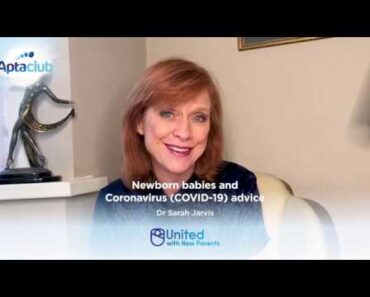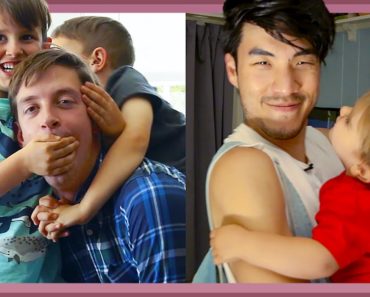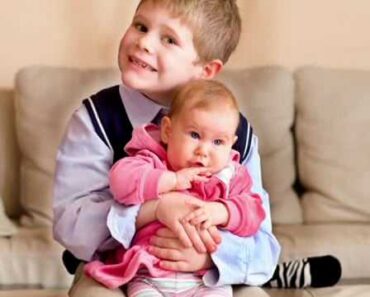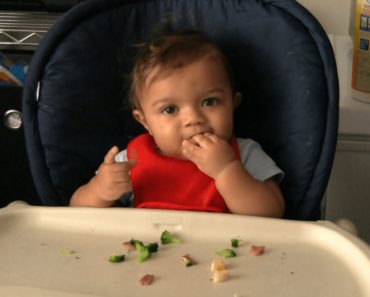Diapers are essential items on the shopping list of new mothers. However, diaper-free days are what parents often dream of. According to some experts, the secret lies in elimination communication (EC) or diaperless toilet training, a potty training method that can help in expediting the use of the toilet for babies from an early age.
EC is not a new trend – it was commonly practiced in the US about three to four generations ago. Want to try the old way of diaperless potty training? Read this post to know about elimination communication, its benefits, drawbacks, and how to get started.
What Is Elimination Communication?
Also known as natural infant hygiene, elimination communication is based on the idea of identifying a baby’s natural timings and cues to understand their need to defecate and urinate (1) (2). Once the caregiver or parents are able to identify these cues, they can coordinate the baby’s bowel movements in a toilet rather than in a diaper.
How Is Elimination Communication Different From Potty Training?
Elimination communication is not about training the child. It is about parents learning and using cues to identify when babies want to relieve themselves.
On the other hand, potty training involves teaching babies to use the toilet. It is initiated when the baby is old enough to eliminate in the toilet without the use of diapers. Babies usually undergo potty training after they turn two years old. Therefore, some experts recommend EC before potty training.
When And How To Start Elimination Communication?
There is no right time to start with elimination communication. Some parents start practicing it soon after birth, while others wait for seven to nine months or even later. This technique requires commitment from parents and constant attention towards the baby’s behavior right after meals or after a walk. Some parents practice it full-time, while others do it part-time (with compromises). Let us understand how one can start with EC.
- Initiate with monitoring: Lay the baby down without a diaper on a waterproof mat so that you can start to learn their signals. Some babies relieve themselves shortly after a meal or after waking up. Notice your baby’s natural potty timings. This is a great way to help babies recognize their own cues as well.
- Introduce cues: When you see your baby relieving, introduce an audio cues, such as a “pss” sound for pee and a “hmm” sound for poo. Babies will start to recognize those sounds and associate them with their go-to time. For some babies, just the act of sitting on the potty mat and the caregiver’s movements can be their cues.
- Keep a potty nearby: Sometimes, babies wrongly interpret cues and may not defecate. So, stay with them near the toilet or keep a portable potty handy.
What Does The EC Method Entail?
Elimination communication is about taking and giving signals. It is primarily based on four aspects:
- Timing: Babies do not have bowel movements at random times throughout the day. They usually relieve themselves after being fed or waking up. Keeping a log or record can help you identify these specific times. When you start understanding the baby’s timings, you can take them to the pot at those times and hold them up for their business.
- Signals: Apart from timing, signals play an important role in this technique. Observe repetitive signals when the baby is about to poop. These signals may include crying, twisting, and wriggling. Your baby may also give you a fixed look, have a red face, and even grunt, pass gas, or strain (3).
- Audio cues: Parents can also introduce audio cues, such as “sss” or “shh,” when the baby urinates so that the baby can eventually relate these sounds to potty time.
- Intuition: As a parent, you know your baby best. Sometimes, your instinct can help you know when your baby wants to relieve themselves.
Things To Keep Handy For Elimination Communication Training
Before initiating EC training, consider your lifestyle, time constraints, budget, and parenting goals. You may need the following things for EC training.
- Portable baby potty: Some babies take a cue from sitting on a baby potty to eliminate the poop. A pot that looks like a toilet is recommended as the baby can also use it during potty training at a later stage.
- Leg warmers: Leg warmers or thigh socks can also signal a baby to urinate or poop. Leg warmers keep the baby warm and comfortable, and they do not come in the way while taking the baby to the potty or changing a diaper.
- Potty-friendly clothing: Dress your baby in clothes that can be removed quickly and easily as soon as the baby gives pooping or peeing signals. You can also consider nightwear that opens at the bottom or clothes that are crotchless.
- Record book/ log/ journal: You may be required to record the observations (cues/signals) and timings of your baby’s bowel movements in the initial days to understand the baby’s biological clock.
- Baby bag: When traveling, you might have to carry many things with you for the baby. A large bag is required to keep everything handy — the portable potty, diapers, tissues, extra set of clothes, etc.
- Diapers (as a back-up): Carrying a few extra diapers as a back-up is a must. A change of diet and a trip outside the home are situations when elimination communication is not possible. Therefore a few diapers can come in handy.
- Help books: There are several books about elimination communication you may want to read. This can be a lengthy and stressful period for parents, so a well-written book could prove useful in guiding you through the process.
What Are The Benefits of Elimination Communication?
- Fewer rashes and infections: When babies wear soiled or unsoiled diapers for a long time, their skin may get irritated. However, when babies are free from diapers and associated rashes and urinary tract infections, their skin is healthier, and they are happier!
- Fewer diapers: EC will reduce the number of diapers and create less waste for parents to deal with. Even if you use cloth diapers, you’ll likely have fewer diapers for washing, eventually saving water and energy. This is also a conscious effort towards protecting our environment. Interestingly, EC is natural, produces no landfill or ocean waste, and is free!
- Economical: You will save a lot more money after cutting down on diaper usage.
- Stronger bond with your baby: You will learn to distinguish between various activities of your baby and will be able to understand their requirements and needs. Understanding their behavior helps in better communication.
- Quicker transition to potty training: Elimination communication does not teach babies to defecate but teaches them where to defecate. Therefore, this step helps in learning and adapting to potty training faster.
- Respite for parents: EC not only helps save diapers and keep your baby’s skin healthier, but also reduces the burden on parents to change and deal with diaper waste.
- More comfort for the baby: Sometimes, due to neglect from parents, babies keep lying in their poop, which can be unbearable for babies. In EC, parents monitor babies throughout the day for cues.
What Are The Drawbacks Of Elimination Communication?
- Time: Initially, EC training can be time-consuming. Every parent may not have enough time to spend the first two years of life beside their baby. The convenience diapers offer is undeniable for some parents.
- Logistics: Some working parents may not be able to allocate their time on weekdays to practice EC. This practice can’t be skipped on weekdays and continued on weekends; it requires regular monitoring.
- Isolation/ Social acceptance: Many parents you meet will be dependent on diapers and may even discourage you from continuing to practice EC. You might also face many queries and random reactions.
- Comfort: EC is best practiced in the comfort of your home, to know your baby’s timings, identify the signals, or use a designated place or toilet to take the baby for the bowel movements. The baby might not feel comfortable in unknown surroundings.
- Messiness: Learn to understand from inevitable mistakes that will happen while identifying cues from the baby. You might encounter a pooped diaper from time to time.
- Inconvenience: Your baby may not poop or urinate when in an unfamiliar environment, and carrying all the accessories for EC can be difficult.
At What Age Can You Start The EC Method Of Potty Training?
Parents can decide at what age they want to start EC training. Some parents prefer full-time EC soon after the baby is born (three to six months of age), while others may prefer part-time EC, which involves using diapers selectively at night, during naps, or when outside. If you are unable to start early, you may explore EC training when your baby is receptive to it.
How To Get Started With Elimination Communication Potty Training?
- Be observant: Being observant is of the utmost importance while practicing EC. Parents need to monitor cues from babies continuously. It is also recommended to maintain a record/ notebook initially, to keep a log of their behavior pattern.
- Keep a potty handy: You can either take the baby to the potty or bring a portable potty to the baby. It is advisable to practice EC using the potty as it will be helpful in the future for initiating potty training.
- Carry your baby: Holding your baby in a preferred position or close to you can help you understand their behavior. Babies usually have a red face or show discomfort before needing to defecate.
Do You Need To Buy Any Diapers While Practicing EC?
As discussed earlier, EC can be practiced full-time or part-time. Therefore, your requirement for diapers can very well change according to what you practice. However, during the initial days of training or while traveling, it is advisable to carry diapers. Interestingly, it is believed that with EC, diaper usage eventually decreases with training.
You can consider elimination communication if you wish to connect with your baby, spend less on diapers, and do your part in saving the environment. There is no right time or right approach to go for it. Some parents may start soon after birth, while others wait for a longer time. Similarly, based on their lifestyle choices, budget, and goals, some parents may practice full-time EC, while others may do it part-time with compromises. As with parenting, you may feel frustrated at times; therefore, consider your resources and support system while making a choice.

































